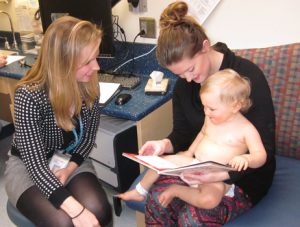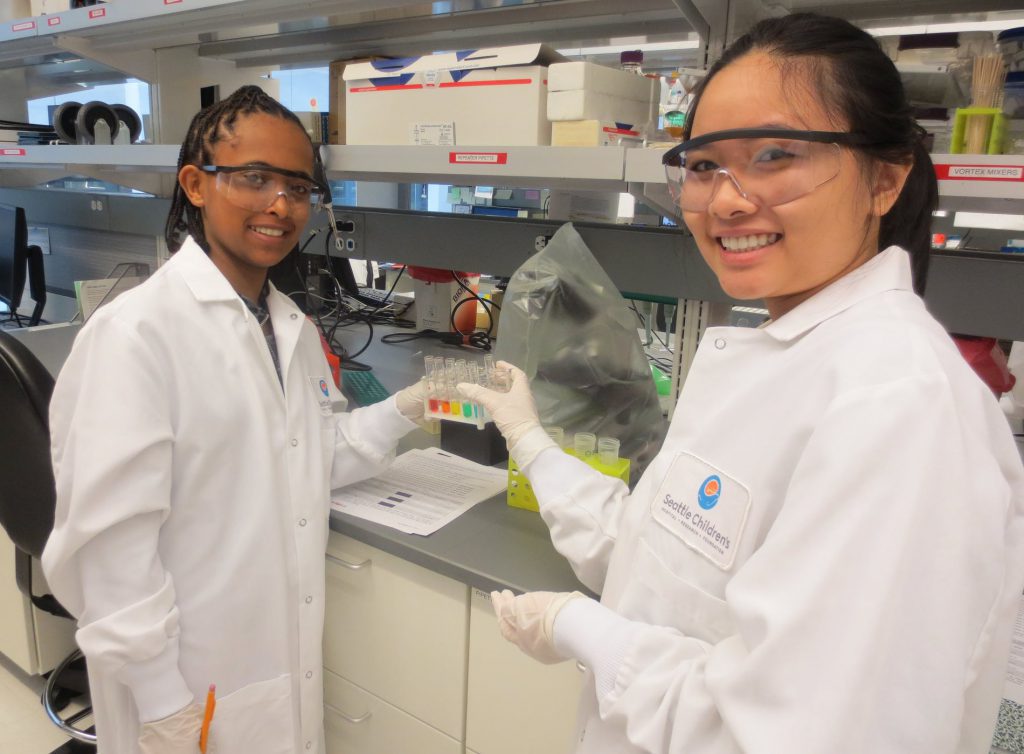From story time at preschool to reading bedtime stories, books play an important role during childhood. “Reading together is a critical part of early childhood brain development,” said Dr. Emily Myers, a pediatrician in Seattle Children’s Neurodevelopmental Clinic. “Reading helps children build language and social skills. When stories are a shared experience between kids and their […]
What if your child could help unlock a mysterious diagnosis or test a new treatment? Each year, hundreds of patients participate in research studies conducted by Seattle Children’s Research Institute. Although the focus of the studies varies broadly, they all have one common goal: creating a better future for generations of children. This year, the […]
At Seattle Children’s Research Institute, doctors and researchers work every day to develop treatments and cures for childhood diseases. With the launch of the Seattle Children’s STEM internships for high school students this year, young people became scientific investigators themselves, working side by side with researchers in the lab. As part of the new program, […]
Children with autism spectrum disorder (ASD) are becoming a larger proportion of Seattle Children’s patients, challenging providers to develop new tactics to meet their unique needs. This year’s Pediatric Bioethics Conference, “Autism Re-examined: Ethical Challenges in Care, Support, Research and Inclusion,” will focus on the challenges and special requirements of treating these patients. Dr. Eileen […]





